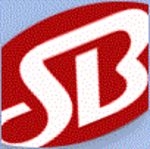Description

ChurchCRM

Tabernacle
Comprehensive Overview: ChurchCRM vs Tabernacle
Overview of ChurchCRM
ChurchCRM is an open-source, web-based customer relationship management (CRM) system specifically designed for church organizations. It aims to streamline and support the management of church operations, including member engagement and community building.
a) Primary Functions and Target Markets
-
Primary Functions:
- Membership Management: Tracking and managing member details, attendance, and involvement.
- Donation Tracking: Managing donations with options for generating reports and providing end-of-year tax statements.
- Communication Tools: Facilitating communication within the congregation through email and text messaging features.
- Event Management: Organizing events, volunteer opportunities, and scheduling.
- Reporting and Analytics: Offering insights and metrics on church activities and member engagement.
-
Target Markets:
- Small to medium-sized churches and religious organizations looking for cost-effective management solutions.
- Nonprofit organizations with similar operational needs to a church environment.
Overview of Tabernacle
Tabernacle is not widely recognized in the same context as ChurchCRM. If you meant another CRM or software solution used by religious organizations, it might not be as prominent or could be a specialized tool focusing on particular aspects of church management or religious community service.
a) Primary Functions and Target Markets
Assuming Tabernacle is also a church management solution, it would typically include:
-
Primary Functions:
- Similar to ChurchCRM, likely involving membership management, donation handling, and event organization.
- Some unique features or integrations that might cater to specific needs or practices within certain denominations or religious communities.
-
Target Markets:
- Likely targeting a niche market or specific religious groups or denominations needing tailored solutions.
b) Market Share and User Base
-
ChurchCRM:
- Being open-source and free to use, ChurchCRM is popular among smaller churches with limited budgets. Its market share is primarily among institutions seeking low-cost, customizable CRM solutions.
- It has a growing user base due to its collaborative community and contributions from volunteers who improve and maintain the software.
-
Tabernacle:
- Without specific information about a product named Tabernacle, it is challenging to provide definitive insights into its market share or user base. If it exists, it might serve a more specialized or localized user group.
c) Key Differentiating Factors
-
ChurchCRM:
- Open-Source Flexibility: Users can modify and adapt the software to better fit their specific needs.
- Community-Driven Development: As an open-source project, it benefits from community contributions, which drive ongoing improvements and feature additions.
- Cost-Effective Solution: It is free to use, making it accessible to organizations with limited budgets.
-
Tabernacle:
- Assuming Tabernacle is a church management solution, any differentiation would likely stem from:
- Niche Features: Unique functionalities tailored to specific religious practices or administrative needs.
- Integration Capabilities: Potentially offering superior integration with other tools or platforms commonly used in certain religious communities.
- Support and Customization: May provide enhanced customer support or customization options for its target market.
- Assuming Tabernacle is a church management solution, any differentiation would likely stem from:
In summary, ChurchCRM is an established, open-source option favored by many small to medium-sized churches due to its flexibility and cost-effectiveness. In contrast, Tabernacle would need to be further defined or clarified, as it may represent different products or solutions with varying scopes and distinguishing features.
Contact Info

Year founded :
2012
Not Available
Not Available
Australia
http://www.linkedin.com/company/churchcrm

Year founded :
2022
Not Available
Not Available
India
Not Available
Feature Similarity Breakdown: ChurchCRM, Tabernacle
When comparing ChurchCRM and Tabernacle, it's essential to assess the functionality, user experience, and unique offerings of each platform. Here's a breakdown based on common features, user interface comparison, and unique features:
a) Core Features in Common
Both ChurchCRM and Tabernacle offer a range of features designed to assist with church management. Common core features typically include:
-
Member Management: Both systems offer tools for managing and organizing member information, including contact details, family relationships, and member directories.
-
Donation Tracking: They provide capabilities to record and track tithes, offerings, and other donations. This includes generating reports for accounting and tax purposes.
-
Group/Event Management: Both platforms allow for scheduling and managing church events, programs, and group activities.
-
Volunteer Management: Tools for organizing and managing volunteer efforts and assigning roles and responsibilities.
-
Communication Tools: Features such as email or SMS communication for keeping the congregation informed.
-
Reporting and Analytics: Both platforms typically offer a suite of reporting tools to analyze member engagement, donations, attendance, and other metrics.
b) User Interface Comparison
- ChurchCRM:
- ChurchCRM tends to have a straightforward, functional user interface. It's often open-source, allowing for customization to fit specific church needs. The design emphasizes ease of use and accessibility but may require some technical knowledge to fully customize and deploy.
- Tabernacle:
- Tabernacle's user interface is often noted for being more modern and user-friendly, with a focus on a more visual and intuitive design. This platform usually aims to reduce the learning curve often associated with church management software, making it approachable for non-technical users.
c) Unique Features
-
ChurchCRM:
- Open-Source Nature: Being open source, ChurchCRM offers extensive customization and community-driven features that can be tailored to specific church needs.
- Self-Hosting: It allows for self-hosting, giving churches complete control over their data, which can be a critical factor for organizations concerned with data privacy.
-
Tabernacle:
- Built-In Integrations: Tabernacle may offer more in terms of third-party integrations, providing seamless connections with platforms for accounting, social media, or communication tools.
- Advanced Analytics and Reporting: Sometimes, Tabernacle includes more advanced analytics features, providing deeper insights into congregation dynamics and operational efficiencies.
Each product has its merits, and the choice between ChurchCRM and Tabernacle often boils down to the specific needs and technical capabilities of the church or religious organization using them. While ChurchCRM is highly customizable and privacy-focused, Tabernacle may appeal to those looking for ease of use and modern design.
Features

Not Available

Not Available
Best Fit Use Cases: ChurchCRM, Tabernacle
ChurchCRM and Tabernacle are both platforms designed to manage specific organizational needs, particularly for religious institutions and related communities. Let's break down the ideal use cases and the different scenarios where each might be the best fit:
ChurchCRM
a) For what types of businesses or projects is ChurchCRM the best choice?
-
Churches and Religious Organizations:
- ChurchCRM is primarily designed for churches and religious communities looking to manage congregational data effectively. These organizations can benefit from its features like membership management, scheduling, communication, and donation tracking.
-
Non-Profit Religious Projects:
- Projects that require managing volunteer data, organizing events, and tracking contributions would find ChurchCRM particularly useful. Its open-source nature makes it adaptable to various needs.
-
Small to Medium-Sized Churches:
- Ideal for small to medium churches that need essential tools without a significant financial investment. ChurchCRM provides a cost-effective solution with robust features suited to organizations with limited budgets.
d) How does ChurchCRM cater to different industry verticals or company sizes?
- Industry Verticals: ChurchCRM's focus is predominantly on religious institutions, providing tools that cater specifically to the needs of clergy, church administration, and community management.
- Company Sizes: Best suited for small to medium-sized congregations due to its scalable features, allowing organizations to manage a growing number of members without changing platforms.
Tabernacle
b) In what scenarios would Tabernacle be the preferred option?
-
Advanced Church Management Needs:
- Tabernacle may offer more advanced or specific features tailored to larger churches or denominations that require more detailed analytics, customization, and integration with other systems used by large religious organizations.
-
Multisite Churches and Complex Structures:
- It's well-suited for larger, multisite churches that need to coordinate events, services, and resources across different locations. Tabernacle can handle complex organizational structures with ease.
-
Religious Institutions with Formal IT Departments:
- Organizations with dedicated IT staff who can manage more complex implementations and integrations may find Tabernacle's advanced features more beneficial.
d) How does Tabernacle cater to different industry verticals or company sizes?
- Industry Verticals: While also focused on religious organizations, Tabernacle may offer modules or features that could appeal to other faith-based organizations or charities involved in extensive outreach or community service programs.
- Company Sizes: It is better suited for medium to large-sized organizations that require more comprehensive management features and can allocate resources for implementation and customization.
In summary, ChurchCRM is ideal for smaller, cost-conscious religious organizations looking for fundamental management tools, while Tabernacle is a better fit for larger, more complex institutions requiring advanced features and integrations. Each caters to different organizational sizes and slightly varied operational needs within the religious and non-profit sectors.
Pricing

Pricing Not Available

Pricing Not Available
Metrics History
Metrics History
Comparing undefined across companies
Conclusion & Final Verdict: ChurchCRM vs Tabernacle
Conclusion and Final Verdict for ChurchCRM vs. Tabernacle
When evaluating ChurchCRM and Tabernacle, the choice ultimately depends on various factors such as the specific needs of a congregation, budget constraints, technical expertise, and desired features. Here's a comprehensive conclusion to aid in decision-making:
a) Best Overall Value
ChurchCRM offers the best overall value, primarily due to its open-source nature, which means there are no licensing fees, and it provides a robust set of features right out of the box. It is ideal for churches looking for cost-effective solutions with flexibility for customization.
b) Pros and Cons
ChurchCRM:
-
Pros:
- Cost Efficiency: Being open-source, there are no direct costs associated with licensing, making it suitable for smaller congregations with limited budgets.
- Customizability: High degree of flexibility in customizing features to meet specific church needs.
- Community Support: Strong community support with forums and shared resources for problem-solving and enhancement.
- Features: Comprehensive features including membership management, contribution tracking, and calendar functionalities.
-
Cons:
- Technical Expertise Required: Installation and customization may require technical knowledge, particularly for setting up a server environment.
- Limited Professional Support: No official customer support, relying instead on community forums.
- Less User-friendly: May have a steeper learning curve for non-tech-savvy users initially.
Tabernacle:
- Pros:
- User-Friendly Interface: Designed with a focus on ease of use, making it accessible for users with limited technical skills.
- Professional Support: Offers professional customer support and training services, which can be advantageous for troubleshooting and onboarding new users.
- Feature-Rich Environment: Provides extensive church management features, often with built-in customization tools.
- Cons:
- Cost: Subscription fees can add up over time, particularly if additional features or services are required.
- Limited Customization: Although it offers customization tools, it might not be as flexible as an open-source solution for more complex needs.
- Dependency on Vendor: Reliance on the vendor for updates, maintenance, and sometimes data management.
c) Recommendations
For users trying to decide between ChurchCRM and Tabernacle:
-
Budget-Conscious Users: ChurchCRM is advisable for those who are budget-conscious and have access to at least some technical expertise. It’s a cost-effective solution that provides essential features without ongoing subscription fees.
-
Non-Technical Users or Larger Congregations: Tabernacle may be a better fit for users who prioritize ease of use and can afford the subscription fees. Its professional support and user-friendly design are particularly beneficial for larger congregations with less technical staff.
-
Evaluate Priorities: Churches should list their priorities, such as ease of use, level of customizability, budget, and support needs, to determine which system aligns better with their operational goals.
-
Trial Periods: It is beneficial to take advantage of any trial periods offered by these platforms to test the functionality and assess which system integrates more seamlessly with the church's workflow.
In conclusion, both ChurchCRM and Tabernacle offer unique advantages suited to different types of churches. Carefully assessing the needs and constraints of a congregation will lead to the best choice between these two robust church management solutions.
Add to compare
Add similar companies



